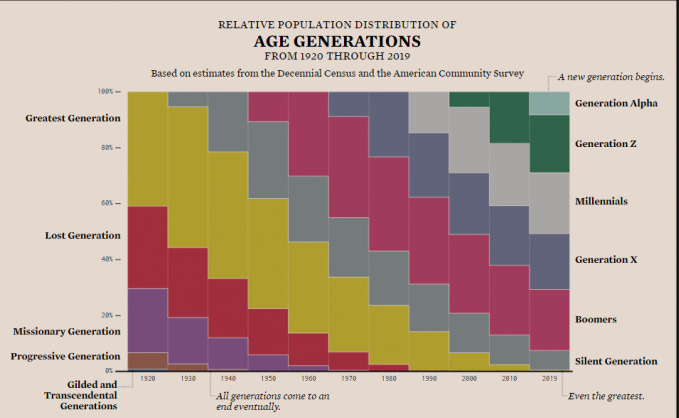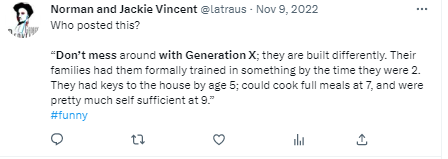Gen Z showed up at the polls in the Wisconsin State Supreme Court race in a big way last Tuesday. Madison, home to the University of Wisconsin, outvoted Milwaukee the state’s largest city. The margin in Dane County (Madison) was 70+(!) points. Every county where a public college exists voted blue.
In many ways, this repeats a cycle with every generation, but the sheer volume and ideological consistency within Gen Z has the potential to impact American politics forever. The issues they have had to grow up with have been largely controlled and progress hindered by the right since 2010 and the Tea Party election. What issues are those?
Abortion is the big one. Just as the generation comes of age and reaches their child-rearing/start of career/ beginning to marry years, the Supreme Court drops a decision like Dobbs on them, overturning Roe v. Wade and making it able for states to ban abortion outright. The political kerosene this case through on a raging fire exploded since 2022, and young people and women are leading that charge.
Gun control. This is the first generation that grew up entirely in the post-assault ban world. School shootings and mass murders with AR15s are commonplace. Led by people like David Hogg and March for our Lives, this generation is adamantly in favor of ANYTHING getting done on gun control, and everytime a Uvalde or Nashville happens, it only furthers their resolve.
Climate change. This generation has been fed a steady diet of rising sea levels, increasing temperatures, melting glaciers and crazy weather for 20 years. They’ve seen progress with the shift to renewables and electric cars but it’s not enough and they are anxious to see more.
Student Loan Debt. Like every generation, they’ve been told if they go to college they’ll get a good job. They’ve racked up thousands of student loan debt and upon graduating realize they have huge minimum payments and aren’t going to make enough to pay off the loans anytime soon. Unlike every generation before, they are asking for the government to pay the whole amount of their loans and will be disappointed until it happens.
These issues are common for this age group. In the 90s when Gen X was graduating from college, they were interested in the same issues. The difference is that 1) Generation Z is considerably larger than Gen X and 2) they are more ideologically monolithic on these issues, with much less variability than previous generations. Gen Z is growing up much more liberal than its generational forebearers and can upend grassroots politics on these issues for the next 20 years.
The End of Boomer Control
The postwar Baby Boom generation have dominated politics for the past 60 years. When Billy Joel sang “We Didn’t Start the Fire” he was talking about the events that shaped their political worldviews. When they came of age in the 1960s, they skewed very liberal too, but were tempered by Vietnam and disillusioned by Watergate. As they aged into thirtysomethings, they graduated college, made money in the Reagan years and switched to Republicans. Since the end of the 80s, the politics and the ardent conservativism that the Republican base became followed with the aging of the Baby Boomers.
Baby Boomers are still retiring at a rate of 10,000+ a day, and many are already in their 70s. They are beginning to age out of the voting population. They still vote in high percentages just as the previous retirees’ generations did, but their overall numbers are starting to wane in relation to the overall voting population. For the first time since the 1980s they don’t have their hands on the national political wheel.
As for Generation X, they started their voting years cynical and unengaged. The voting percentages for them were always small, and their margins, even when young, were always a little less so than previous generations. Coming of age during the success of the ‘80s1 after remembering the lackluster 70s had an impact in their voting decisions. As they’ve aged, in their “through the looking glass moment,” they’ve actually tended slightly more liberal, which is adverse to the general trend (most turn more conservative as they get older).2 With Gen X, their contrarian nature has continued to work against the grain. However, Gen X was never very large as a demographic, and is shaping up to be the smallest generation representation-wise in government since the Silent Generation immediately post-World War II.
Millenials are settling into middle age. Another large generation, they were shaped by 9/11, the wars in Iraq and Afghanistan. Once the housing bubble collapsed just as they were graduating college and job hunting soured them on Republican governance pretty much for good. As they get older and get into their prime moneymaking years, they have stayed pretty liberal but are softening their idealism in favor of pragmatism. Unlike Gen Z, the issues they care about more is more reflective of their ages; education, day care, health care, financials. These are the more practical issues government typically has to deal with; they require compromise and practical approaches to get things done, unlike the more ideologically rigid yes/no black/white issues that Gen Z currently believes in.
Make no mistake, Gen Z will temper their positions as they age, but it seems unlikely anytime soon that they’ll become Republicans like the Boomers did. More likely, they’ll understand that to get stuff done in politics you have to compromise your beliefs for small successess that add up over time. If they take that approach, their success will dominate politics for the coming decades.
Conclusion
As Gen Z gets to voting age, you will continue to see them tip the scales more and more toward Democrats across the country. Fed up, angry and ideologically rigid, they’re fueling a coming liberal wave that will transform politics.
PurpleAmerica’s Recommended Stories
Frankly, I’ve never bought into the hard lines of generational divides. Its just that they become mile markers for people with similar flashpoints growing up.
Nonetheless, one of the more interesting books about generational politics that I’ve read is Gibney’s “A Generation of Sociopaths: How the Baby Boom Betrayed America.” I don’t know if I would go THAT far, but the book is filled with generational politics that are too on point to ignore.
https://www.amazon.com/Generation-Sociopaths-Boomers-Betrayed-America/dp/0316395781
One book I did have to read in college (I’m a Gen Xer so this was back in the 90s) was titled “13th Gen: Abort, Retry, Ignore Fail.” Had to read it for a Sociology class. I couldn’t disagree with the book more. The only thing it DID get right though was trying to classify the generation through multimedia quotes, memes and soundbytes. That has only grown more in pop culture since the 90s.
https://www.amazon.com/13th-Gen-Abort-Retry-Ignore/dp/0679743650/ref=sr_1_1?crid=1QOI19CKE4FN4&keywords=13th+Gen&qid=1681156592&s=books&sprefix=13th+gen%2Cstripbooks%2C115&sr=1-1
PurpleAmerica’s Obscure Fact of the Day
There tends to be generational cycles that everyone goes through. One generation picks on another generation based on where they are, but over time these generations tend to age and evolve into the older generations similarly to the ones they ridiculed previously. With each stage roughly 15-20 years, the cycles tend to be:
Youth (Ignorant, naive, ideolistic, arrogant, absolutist, cynical)
Starting out (Poor, just out of college, newlywed, optimistic, energetic)
Middle Age (Some wealth, kids, practical, moderate, suburban)
Retired (Wealthy, established, grandparents, civic minded, “golden years”)
Old (Stubborn, selfish, low mobility, won’t change, pessimistic)
What is truly curious about Gen Z is that for the first time in polling, they do not feel like they will be as wealthy or successful as previous generations. This is in contrast with the common theme of optimism in that age group and could have interesting ramifications down the road.
PurpleAmerica Cultural Criticism Corner
I’ve always found it interesting how generations get their names. For instance:
“Generation X” comes from the title of a Douglas Coupland book chronicling stories of teens and early 20s. It was intended to describe an entire generation disconnected and disaffected by the mainstream culture; in fact they reveled in their antipathy and alienation towards it.
The “World War II Generation” or “Wartime Generation” became “The Greatest Generation” only after Tom Brokaw’s book; given what they dealt with and how they saved the world, it was a fitting attribute and people agreed. The name stuck.
The first use of the term “Millenial” occured in the late 80s or early 90s. Since the millenium by definition occurs only once every 1,000 years, it seems unique and ubiquitous enough. It received quick adoption as the name.
However, when we get to Gen Z and the subsequent generation, “Generation Alpha” these are kind of bland placeholders until something more descriptive comes along. I have no doubt at some point Gen Z will get a new moniker that won’t feel as derivative, defined by the major events that they have lived through. If you think you have a good name for either, place it as a comment!
Outstanding Tweet
https://twitter.com/latraus/status/1590461673478963212?s=20
Footnotes and Parting Thoughts
Let me know what you think of the page. Please share and comment!
Most Gen Xers still look at the 80s with reverence and it is no accident 80s nostalgia is very popular with this group.
Always loved Winston Churchills quote, “If you’re 20 and you’re not a liberal, you have no heart; if you’re 50 and not a conservative, you have no head.”






Great Substack, very happy I stumbled upon it!